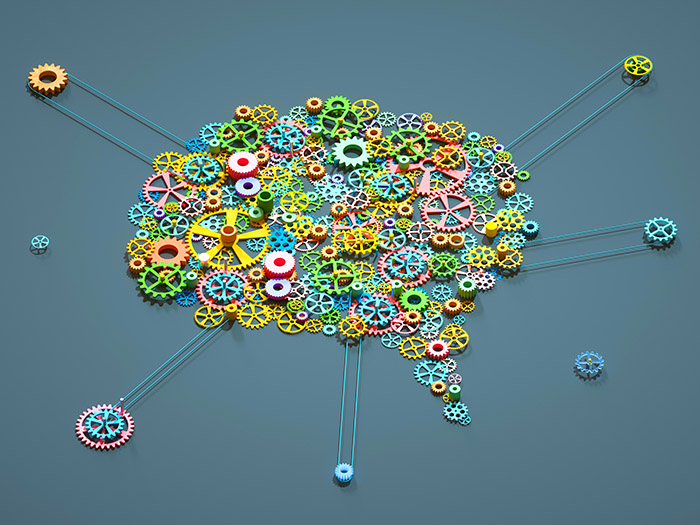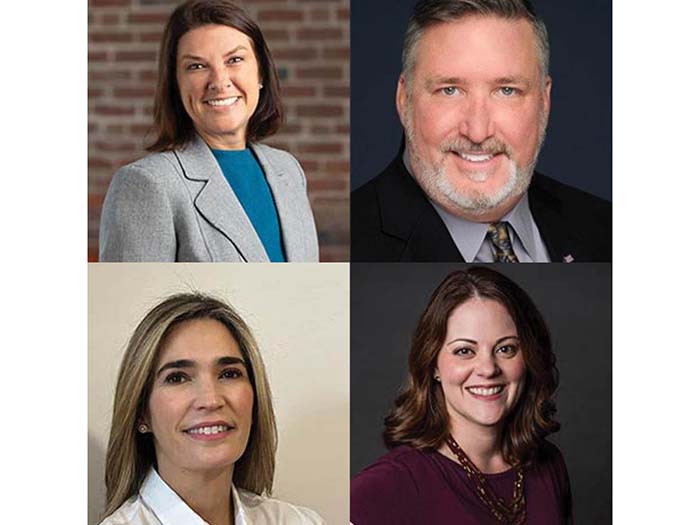ADHD Isn’t Just for Kids: How It’s Affecting Workplace Performance

A broad spectrum of mental health conditions can impact employees’ productivity, their ability to focus and stay safe on the job. One that’s not commonly discussed in the workers’ comp space is attention deficit hyperactivity disorder, ADHD, a neurological disorder more commonly associated with children than adults.
ADHD is often characterized by a persistent patterns of inattention, hyperactivity, and/or impulsivity that can impact both work and home life. An estimated 4.4% of U.S. adults have diagnosed ADHD. However, many more are struggling because they have never been evaluated or diagnosed.
That means the likelihood that any organization has employees struggling with its effects is significant.
Impediments in the workplace include poor attention to detail, an inability to focus, start or finish tasks, forgetfulness, poor time management and difficulty following instructions. It’s easy to see how such manifestations of ADHD could limit employees’ ability to succeed in the workplace, as well as potentially contribute to unsafe practices or behaviors.
“If ADHD is not well controlled, it is associated with significant injuries, traffic accidents, things like that,” said Sara Hathaway, director of behavioral health at AxiomMedical, which provides occupational health services for clients’ employees and works in the fields of workers’ compensation, disability case management and OSHA-mandated medical programs.
Hathaway is one of several mental health experts who recently took part in webinar hosted by Axiom titled “7 Signs for Recognizing and Effectively Managing ADHD in the Workplace.”
The webinar covered seven symptoms of adult ADHD, how it may affect workers and what employers can do to address it and help their employees develop strategies to cope with it.
“ADHD has long been one of the most common psychiatric disorders in childhood and adolescence that can continue into adulthood,” said Scott Cherry, chief medical officer. “Inattention is a hallmark of this disorder, but it also manifest as hyperactivity, which may be more seen in children.”
The panel outlined seven ways in which ADHD may be observed in the workplace including:
- Difficulty concentrating on work assignments
- Dislike for or avoidance of long-term tasks, such as generating reports
- Forgetfulness
- Being easily distracted
- Poor time management skills
- Difficulty listening to others
- Difficulty following instructions
While many people may recognize some of these traits in themselves, Cherry said it is not considered ADHD until it has a significant impact on a person’s daily activities and daily living in such setting as the workplace or school or affects their relationships.
Shawna Stone, psychiatric case manager at Axiom, said a diagnosis of ADHD for a person 17 and over requires at least five symptoms that are persistent for at least six months in two or more areas of a person’s life such as work, school, home or relationships.
“Just because a person may fall into some of these behaviors sometimes doesn’t mean they meet the criteria for a diagnosis,” Stone said.
Hathaway said it is crucial for anyone who suspects they have ADHD to be evaluated and get a proper diagnosis. She also noted that the some of the symptoms of ADHD also are symptoms of other conditions such as anxiety or depression. Any medical doctor or a mental health professional in most fields can diagnose ADHD, she said.
“But my recommendation, if possible, is to go to a psychologist who is going to be the best individual to fully evaluate for ADHD because they can do cognitive testing and that’s going to help you get the most accurate diagnosis,” Hathaway said.
Cherry said undiagnosed ADHD can add stress and make an employee’s problems in the workplace worse.
“Because of an inability to attend to things that are important, to prioritize or to stay relatively calm in certain settings, it adds additional massive stress to that person,” he said.
Persons with ADHD also may engage in other behaviors that have a negative impact on their health such as overeating or substance abuse.
Treatments include cognitive behavioral therapy, medications, which must be prescribed by a doctor and require a diagnosis, and holistic/alternative options.
Cognitive therapy is a short-term, goal-oriented form of psychotherapy that can help a person with ADHD alter their negative thinking patterns, such as thinking ‘I will never meet this deadline’ or ‘I always make mistakes’ and change them to positive thoughts that bolster their self-esteem.
Employees Must Feel Safe
A company that is open about mental health, and has other people in the workplace who can act as sounding boards to someone suffering with ADHD, also can be helpful.
“That’s the beauty of psychologically safe teams in the workplace,” said Autumn Brennan, director of communication at Axiom. “A person may say ‘Hey. I am really struggling with this deadline. Am I overthinking it? Am I under thinking it?’ Can you help me out?”
Brennan cited an example from her own work life in which she helped a former employee with ADHD develop coping strategies.
The employee had confided in Brennan that he felt overwhelmed and had difficulty tackling tasks with long lists of things to do. Brennan purchased a white board and wrote three daily tasks on it for him to accomplish, which enabled him to feel better about his abilities and to succeed.
Accommodations in the workplace, such an abbreviated task list, will need to be tailored to each individual’s particular needs.
Brennan said another strategy is to start recording how long it takes to complete a task.
“You start tracking how long things take and then you can start blocking out your calendar accordingly,” she said.
Other holistic or alternative approaches to handling ADHD include determining what your key distractors are, such as your phone, and taking it out of your environment.
She also advises eating well, getting enough sleep and practicing meditation for a few minutes at the start and end of the day.
Brennan said research has shown that meditation can improve neuroplasticity in the brain, which is defined as the brain’s ability to change and adapt as the result of experience.
“Meditation is medically proven and it’s fun to do,” Brennan said.
As part of its focus on mental health for employees, Cherry said his company is focusing on employees’ resiliency.
“Having a way to look at your employees’ resilience at the population level is really important to your human capital,” he said.
He said developing a mental health program that is comprehensive rather than piecemeal is the best approach, but piecemeal is better than none at all.
Dara Wheeler, chief marketing officer for Axiom, said it’s also important to know that ADHD also can be beneficial in some situations.
“Some of the most creative, interesting people in the world are diagnosed with ADHD,” she said. “You have to learn to live with it and cope with it. There may be a combination of various things that could work for you and you should work with your providers on how to address it.” &











